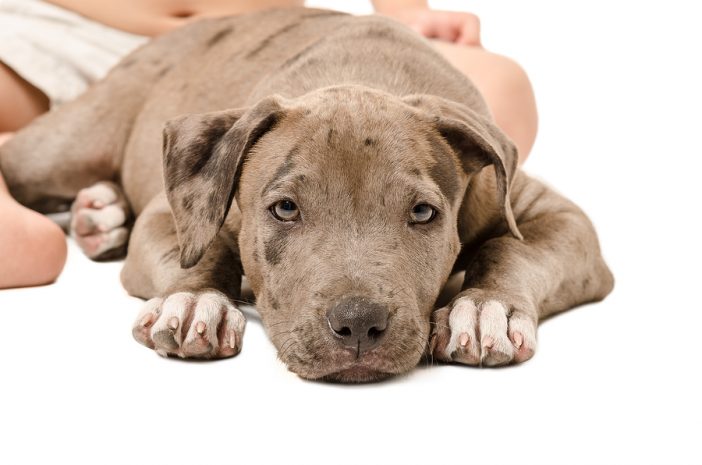
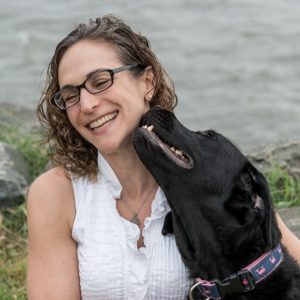
I cannot imagine being anything other than a veterinary oncologist. But I did not always know this was what I wanted to be when I grew up. And I failed miserably a few times getting here.
I did always want to be a veterinarian. My parents like to remind me of the picture I drew in kindergarten of me as a veterinarian. During high school and college, I volunteered in the summers at our local veterinary hospital. I was accepted into my veterinary school of choice. All was going according to my plan.
At Cornell, I developed an interest in small animal surgery. The current surgery resident was so enthusiastic, contagiously so. Each year, he hand selected a few students and took us under his wing. We worked on call, coming in after hours, on the overnights and weekends for emergency surgeries. It was our job to set up the OR, break it down after, and we had the chance to be in the OR during all these surgeries with the residents and often head staff surgeons. I thought: I am going to be a surgeon.
“I’m Going To Be a Surgeon.”
When I matched for my internship at the Animal Medical Center in NYC, my area of interest was noted so I could get surgery rotations early during the year in preparation of applying for the residency match. My first three 6-week rotations were Surgery, Oncology, and Surgery. Oncology, I thought, could be interesting since Cornell did not have a formal oncology service during my vet school years. My limited exposure to actual cancer cases was during small animal medicine rotation, and students were not assigned to the chemotherapy cases. The technicians took care of those cases. But all I really cared about was surgery and applying for the residency match.
I quickly learned during my surgery rotation it was not as appealing as I thought it would be. And I had a secret I tried not to share. I got scared when I had to do surgeries alone. My love of learning about surgical techniques never could override my fear that something fatal could happen in the OR because of me.
My first spay was a six year old overweight pit bull that had just had her third litter. The dogs that came in through the healthy spay/neuter program were supposed to be under four years old but my resident approved this dog. During the surgery, there was increased bleeding deep down by the ovaries. And there was a lot of fat too, making it harder to find a source of bleeding. My resident scrubbed in to double check my ligatures, gave me the okay, and I sutured her closed. I was relieved to get out of the OR, take off my mask, gloves and gowns, and for her to be extubated uneventfully. I checked on her before I went home and was thankful that stressful day was over.
The next morning, my patient could barely stand. The other dogs that were spayed the day before my intern mates were getting an exam, breakfast, and prepped for discharge. We determined my patient was weak, tachycardic, and anemic. A 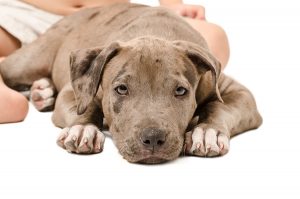 quick ultrasound determined free fluid in her abdomen. My first solo spay was now a hemoabdomen!
quick ultrasound determined free fluid in her abdomen. My first solo spay was now a hemoabdomen!
As the head surgeon and criticalist debated whether we take the dog back into the OR, I crumbled inside. I wondered how I could ever do a lung lobectomy if I could not spay a dog. My patient received a transfusion, and we did not take her back into surgery. She recovered and went home the following day. I was not sure I would recover. Maybe I cannot be a surgeon, I feared.
Then I had my oncology rotation. Like my clients, I was surprised how happy and healthy the cancer patients were. Chemotherapy side effects were rare. And while I loved the science behind cancer down to the cellular level, but I loved the relationships I developed with my weekly to every other week patients and their owners. How could I incorporate this into my career choice, I thought? I will be a surgical oncologist! All that required was a fellowship after my residency. No problem, I naively thought. I was used to hard work and success.
“Sorry Ettinger.”
So I went through all the steps to become a resident. I volunteered for on call emergency surgeries, started to write a paper with an orthopedic surgeon to get published, and applied for the match. On Match Day, the results were not yet online (old school!) We waited while one of the staff clinicians walked around with the list with our futures on it. He looked at me, the sheet, and looked back at me. “Sorry Ettinger.” If he said something nice after that, I did not hear it.
“Sorry Ettinger” was all I heard.
Most of my intern-mates matched, including my boyfriend (now husband.) I was devastated. It was the first time I ever truly failed something academically. After I got the news I hid in the locker room and cried. But I had to get back to my service. There were patients to SOAP and appointments to see.
Looking back it was the best day of my professional career. It changed my career path. In the next weeks, I admitted to myself and my mentors that I did not want to be a surgeon. I decided I would pursue medical oncology. I was warned that it would not be easy. The veterinary profession does not take kindly to people who change specialties. I would have to prove myself.
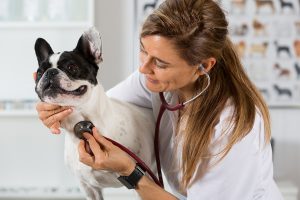
I was offered a cancer research position at Duke University investigating hyperthermia and radiation in dogs with soft tissue sarcomas. So I moved down south and starting preparing my application for the following match in medical oncology. Again, I did all the necessary steps. I went to the annual veterinary cancer meeting and interviewed with every program, and I even flew to a few places all over the country to interview. It got costly and emotionally exhausting.
On Match Day, I met failure again. It was not easier the second time. Again I was devastated. Now I went back to Cornell to work directly with the new oncology service and also assist in the first- year veterinary student curriculum for the oncology basic science courses. Again, I interviewed, I wrote essays, I prayed. And I finally matched.
I could not wait for my residency to start. Some people still doubted my loyalty to oncology. But I knew this was where I belonged.
Once you are a boarded specialist, people you meet do not know the struggles, the failures, you went through to get there. Sometimes I wonder what if I matched for surgery. Would I be a surgeon today? Would I be this happy and passionate about my job? For me, failure led me to my passion. Failure was not enjoyable, but I am grateful for it.
The views and opinions expressed in this article are those of the author and do not necessarily reflect the position of the DrAndyRoark.com editorial team.
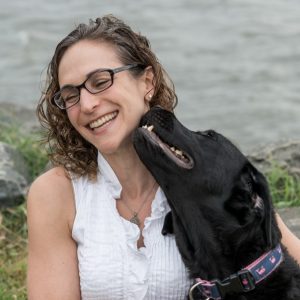 ABOUT THE AUTHOR
ABOUT THE AUTHOR
Dr. Sue Ettinger, ACVIM (Oncology), is a boarded veterinary medical cancer specialist. She attended Cornell University College of Veterinary Medicine. As a Diplomate of the American College of Veterinary Internal Medicine (Oncology), and she is 1 of approximately 300 board-certified veterinary specialists in medical oncology in North America. Dr. Ettinger is currently the head of the Oncology Department at the Animal Specialty Center in Yonkers NY.
Also known as Dr Sue Cancer Vet, she is a book author, radio co-host, and Certified Veterinary Journalist. Dr. Sue is the co-author of the Second Edition of The Dog Cancer Survival Guide, and she co-hosts The Pet Cancer Vet, an internet radio show on radiopetlady.com. From 2011 to 2014, Dr. Sue was a regular contributor to the blog, www.dogcancerblog.com. She lives in Westchester NY with her husband, a veterinary internist, their two sons, their goofy black Labrador, Matilda, and their dog-loving orange cat, Jeter.
Dr. Sue is passionate about raising cancer awareness, and she has developed See Something, Do SomethingTM to promote early cancer detection and diagnosis. The sooner we determine whether a mass is cancerous and should be removed, the better for our pets. Most skin and subcutaneous tumors can be cured if diagnosed early when masses are small. Early detection saves lives.
She can be found on social media at www.facebook.com/DrSueCancerVet and @DrSueCancerVet on Twitter.